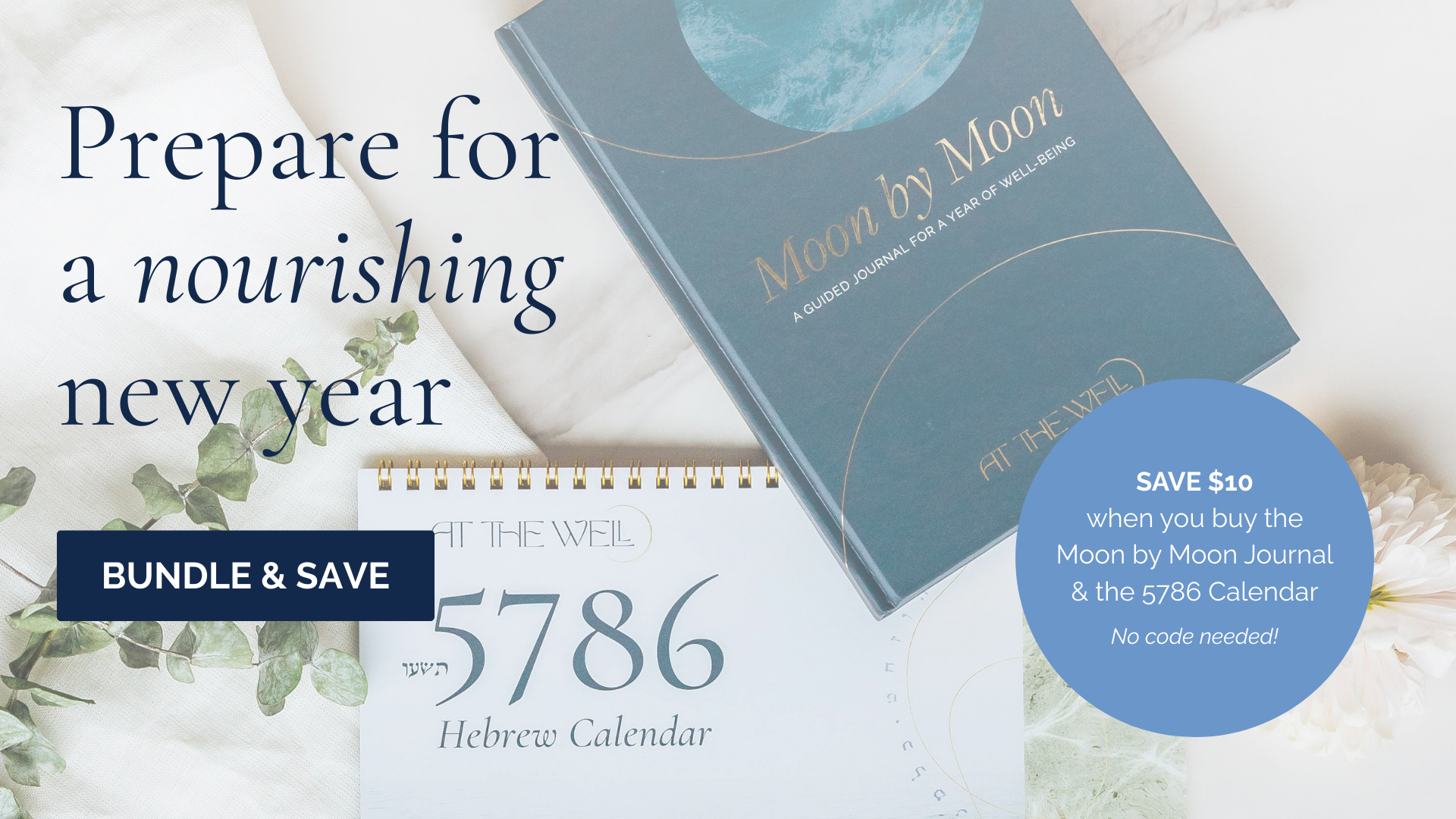In 2015, on Yom Kippur, I lost the first of my four grandparents. What I didn’t know then was that over the next three years, I would also lose my dad and the rest of my grandparents. Up until that point, I had not experienced death that close to me. To say that I was dealing with an inordinate amount of grief was an understatement. To cap it all off, I went through a breakup the year after my last grandparent died. By the time 2019 rolled around, I was swimming in grief.
To help manage all of this loss, I started taking walks on the same path every day in the park outside of my home. It was the start of spring, and the melt of snow gave way to so much change and growth. These daily walks served as a reminder that even when we feel stuck, things are always changing and there is beauty amidst so much heartache. I learned through these walks that even though I felt so alone, I wasn’t at all. Each tree I passed reminded me that we are all connected to something larger than ourselves. For the first time in my life, I felt open to the possibility of G-d. This eventually helped me to reconnect to Judaism.
I grew up in a multi-faith household in Iowa, in a town where we didn’t have connections to other Jewish families or communities. I didn’t meet my first Jewish peer until middle school. My dad shared a mostly secular version of Judaism with us. We attended services only on High Holidays, and we often shared our Judaism by hosting non-Jewish friends for Passover or Hanukkah parties. I did not know what Shabbat was until I was well into my twenties. While I felt connected to Jewishness as a culture, I did not understand the spiritual significance or meaningful ritual it had to offer, especially in marking transitions, such as death.
As I grew older, I found spiritual meaning in the esoteric. I learned about astrology, tarot and energy healing. I felt more comfortable connecting to my spirit in the woods than I did at temple. So it surprised me when I decided to join my friend for Shabbat services one Friday night. I was still processing a lot of grief and something told me to show up. Shabbat was still quite unfamiliar to me — I had only attended Shabbat services one other time and had never returned because it felt so foreign and unwelcoming to me.
This time was different. As a queer and trans person, there were people who looked like me at services and there was a trans flag on the wall in the lobby. One of my friends was singing on the bimah (a raised platform) and other friends were dotted throughout the space. The rabbi gave welcoming remarks, stating simply that everyone belongs here, even if it is their first time or they weren’t familiar with the service. Tears welled up in my eyes; I knew that I belonged here, in all my brokenness and grief. It felt like a homecoming.
At the end of the service, I said Kaddish (a prayer recited collectively for those in mourning, to reaffirm faith in spite of loss) for my dad. It was only a few weeks after the three-year anniversary of his death. I had never recited Kaddish. I had never been present while others shared stories of their loved ones (a regular practice at this particular temple), keeping them present and alive through their words. I was moved to honor other people’s loved ones as I got to honor my own. And even though my dad showed me his unconventional, mostly secular Judaism, being at temple felt like a way to connect back to him, his parents and the long line of Jewish kin before him.
I returned to Shabbat services many times after that. It is now four years later and I have hosted Shabbat dinners as well as many other Jewish holidays. I have been in wild Purim spiels and deep portals into mystical, earth-based Jewish ritual. I have found ways to connect the esoteric spirituality I was first drawn to with Judaism. And I found a lively queer and trans, anti-fascist form of Judaism that feels all my own. It started from the seed of broken-heartedness and grief for my dad and grandparents, and has morphed into a deep spiritual connection with my ancestors and my cultural and religious lineage.
At The Well uplifts many approaches to Jewish practice. Our community draws on ancient Jewish wisdom, sometimes adapting longstanding practices to more deeply support the well-being of women and nonbinary people. See this article’s sources below. We believe Torah (sacred teachings) are always unfolding to help answer the needs of the present moment.
Jewish Death and Mourning 101, My Jewish Learning
How to Say the Mourner's Kaddish, My Jewish Learning

